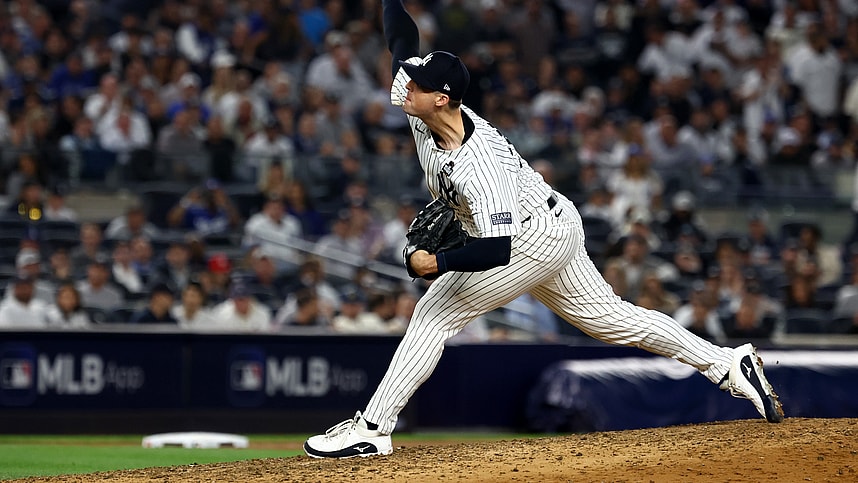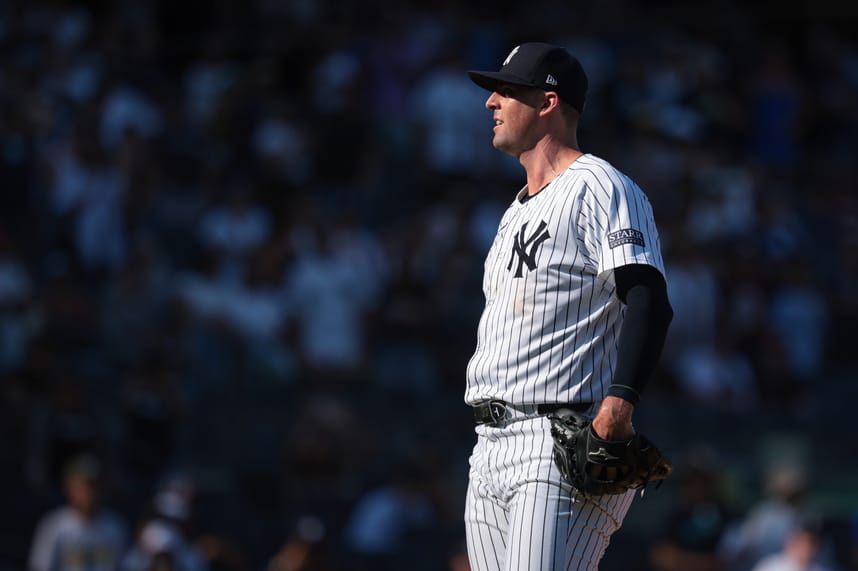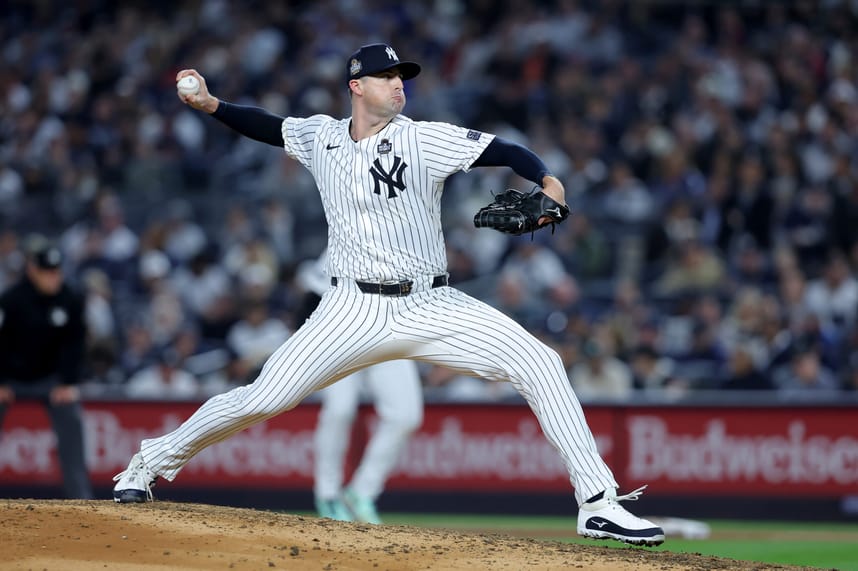
When it comes to nerve-wracking moments on the mound, few pitchers bring the suspense quite like Clay Holmes. The Yankees relied on Holmes as their primary closer for much of the 2024 season but eventually turned to Luke Weaver in high-stakes situations down the stretch and throughout the playoffs. Weaver’s consistent control and pinpoint accuracy proved essential, leading to Holmes taking a setup role.
Holmes’ Free Agency and Potential Cost
This offseason, Holmes enters free agency after finishing a one-year, $6 million deal in his final year of arbitration. The Yankees have the option to extend a qualifying offer, likely around $19 million, but that price is steep for a pitcher who may not retain the closer role. While Holmes could slide in as a closer for a team in need of high-leverage arms, he may better serve as a setup man on a stronger roster.

Despite a 2.25 ERA over 12 postseason innings, Holmes’ shaky command raises concerns. His inconsistency in pressure situations contributed to the Yankees leaning on Weaver in critical games, as Weaver demonstrated the control to hit corners reliably with his fastball.
Holmes’ 2024 Performance: Strengths and Weaknesses
Holmes ended the regular season with a career-high 30 saves over 63 innings and a respectable 3.14 ERA. However, he also led the league in blown saves in 2024. On the positive side, he’s shown durability, logging three consecutive 63-inning seasons, indicating he can withstand a heavy workload.
With these strengths in mind, Holmes is likely to receive competitive offers in free agency. Given that former Yankee Tommy Kahnle secured $11.5 million over two years, Holmes could command close to $10-15 million annually, making him an attractive option for teams seeking bullpen depth, though possibly out of reach for the Yankees given their other priorities.
Yankees’ Offseason Priorities: Big Needs Beyond Holmes
The Yankees have more pressing needs this offseason, primarily extending superstar Juan Soto and addressing both first and second base vacancies. The potential return of Gleyber Torres, who may demand around $18 million annually, adds to their payroll considerations. With these high-cost moves in play, re-signing Holmes may not fit within their financial plans.
Holmes’ Impact and Skills Are Hard to Replace
Despite his inconsistencies, Holmes’ contributions shouldn’t be overlooked. Ranking in the 100th percentile for ground ball rate, 88th percentile in fastball velocity, and 82nd percentile in whiff rate, he excels at inducing swings and misses and generating ground balls. These qualities make him a valuable bullpen asset, albeit one the Yankees may choose to part with.

While his skill set is rare, pitching coach Matt Blake has a track record of uncovering underappreciated talent, evidenced by the successful acquisitions of Holmes and Weaver. The Yankees may lean more heavily on Mark Leiter Jr., whom they acquired from the Cubs at the trade deadline, as a potential high-leverage option moving forward.
The Yankees’ Strategy Moving Forward
The Yankees still need a reliable, high-leverage arm, particularly one they can trust in critical moments. They may be better off waiting until next season’s trade deadline to secure such an asset, allowing them to assess health and performance before making a significant investment. This strategy could ensure that they strengthen their bullpen at a manageable cost, whether through trade or a more affordable signing.
- The Yankees should not be deterred by Kyle Tucker’s poor market
- The Yankees might have found their next Luke Weaver in $2 million signing
- Yankees predicted to land Bo Bichette but the reason is ludicrous
In any case, as Holmes heads to free agency, the Yankees will need to weigh their options carefully and decide if he fits into their future bullpen plans or if they’re better off reallocating resources to address larger needs for the 2025 season.
More about: New York Yankees